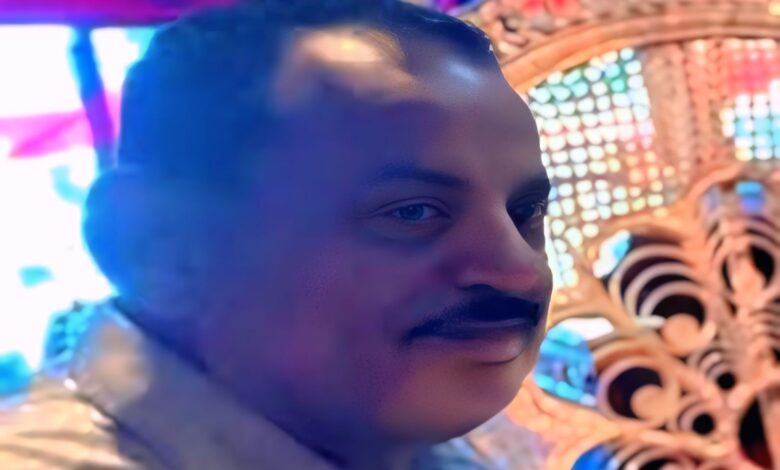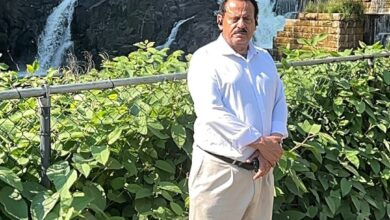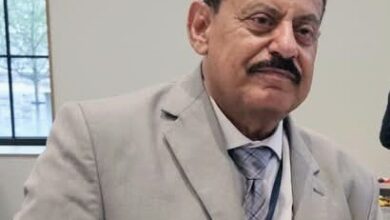Escaping Forward

Yemenimp
Ahmed Saif Hashed
On one of the early days of my schooling, I found myself late for the morning assembly. Fearing the punishment that the schoolmaster would impose on me, I decided against going to school and instead sought refuge in a small room above our neighbor’s cow shed, belonging to the farmer, Mani Saeed.
This room served as a lodging for wandering merchants, who would spend a day or two if their stay was prolonged. Most of the time, it remained empty for weeks, awaiting guests.
I fled the punishment for my tardiness at the assembly, only to plunge into a greater dilemma: missing an entire day of school. Thus, I found myself deepening my predicament, moving from one trouble to an even larger one.
The following day, I returned to the same room, and the scene repeated itself on the third and fourth days. Each day, I found myself entangled in a greater and more severe dilemma than the one before.
With every passing day, my troubles seemed to grow, and my anticipation of punishment intensified alongside my ongoing absence from school. The longer I stayed away, the more fear and dread consumed me, until by the fourth day, the prospect of punishment loomed large and ominous in my mind.
From the very first day, I lacked the courage to bear the responsibility and consequences of my initial mistake. This error continued to grow and expand, and with it, the postponed punishment loomed larger, parallel to my wrongdoing.
I spent six hours a day in that dreary room. The atmosphere was oppressive, and the hours felt unbearably heavy, crushing me beneath their weight as if a train were rolling over my weary body. Yet, courage eluded me when it came to admitting my fault and preparing to accept responsibility.
The hours dragged by at a tortoise’s pace in an unforgiving land. They were dull and monotonous, and I had never anticipated that time would unfold in such a manner, with such slowness and sameness. Even though I recognized that this experience was less burdensome than the punishment awaiting me—a punishment that grew more daunting with each passing day, perhaps even beyond my endurance—it was a flight forward, from one calamity to an even greater one.
I tried to alleviate the monotony of those hours by gazing out into the limited space framed by the small window, peering cautiously and timidly.
Each day spent in that room, which I had chosen as an elective prison, was a struggle, leaving me exhausted after six hours of waiting and a slow bleed of my spirit.
I gaze at a small part of the valley visible from that window, watching the comings and goings of people below. Whenever I hear a sound nearby, I flinch with suspicion, peering through the cracks of the door to see what is happening outside, consumed by anxiety over the potential revelation of my situation and my hiding place.
At times, driven by curiosity and a desire to see the world beyond the door made of wooden planks and tin, I find my eyes cautiously searching through the gaps. Occasionally, seeking a momentary escape from my confinement, I allow my gaze to wander, but as time drags on, my imprisonment feels increasingly suffocating. The minutes crawl by, stretching the wait into an agonizing eternity.
On the fifth day, my secret was exposed when I overheard the teacher questioning my father about my frequent absences. My father, taken aback and shocked, replied that I went to school every day. The moment this reached my ears, I rushed to school in a panic, realizing that the axe had fallen upon me, that my situation had unraveled, and I must prepare to pay a steep price of pain all at once—a price whose magnitude I could not fathom, nor could I gauge my capacity to endure it.
* * *
Perhaps I was excused that day, for I was still a child, unformed and untrained, navigating a harsh environment devoid of even the most basic cultural and educational resources. The few available means were often distorted, dry, or entirely absent.
Today, those who flee forward have become individuals, ranks, and entire groups. The situation has transformed dramatically; the act of escaping forward has become familiar and commonplace. This flight from one dilemma to a greater one is no longer limited to a child like me; it extends to political parties, movements, and even entire nations.
This is not solely my story; it is the story of Yemen as a whole, encompassing its people. It narrates the saga of factions, elites, and parties that have fled forward from bad to worse, from worse to catastrophe, and from catastrophe to something even more disastrous. It has escalated from internal strife to regional conflict, and now to a complex international crisis.
What transpired was a tragic regression from the dream of a state to a state of lawlessness. It was a frantic escape from the aspirations of a modern civil state and democracy into a war that refuses to lay down its burdens. We have endured seven years of chaos and bleeding, with nothing worse than the ensuing poverty, oppression, and the entrenchment of the war’s devastating consequences.
The regression continued from a quasi-state to a failed state, then to the remnants of a state, culminating in a state of lawlessness. Our dreams shrank and faded into realms that no one could have imagined.
We moved from disagreement to conflict, from conflict to ongoing cycles of violence, and ultimately to a fierce war intertwined with horrific internal and external struggles.
We transitioned from peaceful protests to various battles, then to a prolonged war, or from a lack of war to fierce combat, and finally to multiple wars that leave nothing intact.
What has happened and continues to happen reminds me of a quintessential Yemeni joke that encapsulates our plight: “Leave the goat and tie up Jumaa.” The joke goes:
A goat wandered into a room where a father was having dinner with his children.
The father said to his eldest son, “Get up, Jumaa, and tie the goat quickly before it scatters us.”
In his haste, Jumaa bumped his head against the hanging lamp, shattering it and plunging the house into darkness. Suddenly, he could see nothing. One of his feet landed in the food dish, flipping it over and scattering its contents across the floor. Startled, Jumaa jumped, and his left foot landed in his father’s stomach while his right foot struck his father’s forehead!
The father yelled at his children, “Kids, leave the goat and tie up Jumaa!”
How plentiful our gatherings have become! Once, despite their flaws, they were better than what we experience now. They were infused with kindness, warmth, and forgiveness, but today they have transformed into scenes of bullets, death, gunpowder, and loss. Our gatherings have multiplied, resembling the jokes that evoke sharp sarcasm, bitter despair, and profound pain.
What has happened and continues to unfold exceeds the limits of Yemen’s patience and endurance, a reality that has materialized in ways no one could have imagined or foreseen.
* * *






